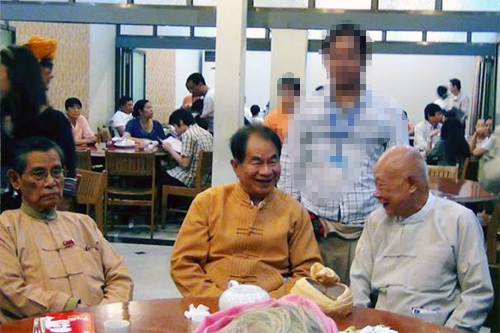The reason for the country’s long-standing ills are due to broken promises made at Panglong in 1947, one of the most widely respected and be loved Shan scholar Sai Aung Tun told a ceremony held in Rangoon on Monday, 22 July, in honor of elder statesmen, according to Shanni News & Communication Center.
“The country is rich in natural resources and we have only a population of 60 million,” he told his audience. “If there were better planning, there would have been more than enough work for the 60 million workforce. Other countries are able to feed 200 million, 1 billion people. So if we are unable to feed, help and take care of our 60 million, there must be something wrong with the way we are running the country. It is our duty to pool our resources to find out what went wrong.”

He pointed out that countries whose learned people go abroad to find work are said to be suffering from “brain drain,” but that in Burma, people from all walks of life have been moving out. “I would call the situation a human drain,” he said.
According to him, while the immediate cause was the long drawn-out civil war, the root cause was the broken promises made at Panglong between Aung San and the non Burman leaders: Full autonomy, human rights, democracy and financial autonomy. He suggested the way out was to re-cultivate the Panglong spirit and develop a democratic way of thinking that is compatible with the democratic system the country is trying to create.
“Because of the Panglong Spirit, the Panglong Agreement came into being,” he said. “Because of it, Independence was achieved. And because of it, we now have, I believe, Daw Suu (Aung San Suu Kyi). The Panglong Spirit had indeed shaken the world.”
Sai Aung Tun was born in 1932 in Hsipaw. He obtained an MA in International Relations at the University of Denver, Colorado. Back in Burma, he taught history at Taunggyi College, Mandalay University and Magwe College. From 1970-1980, he assumed the post of principal of Myitkyina College. From 1985 to 1988, he was elected a State Councilor.
He is best known for his History of the Shan State: From its origins to 1962, published in 2009. The lesser known achievement was his 1969 launch of the highly popular and successful Shan literary campaign: the Five Horses Movement that has lasted to this day.



